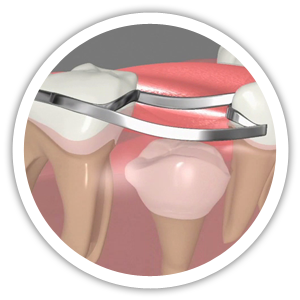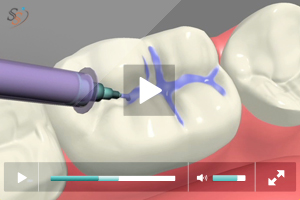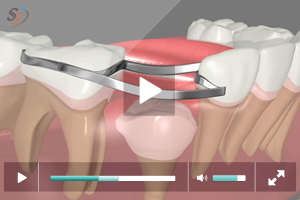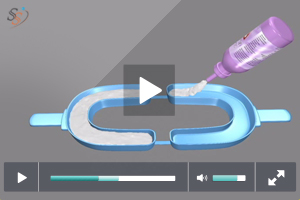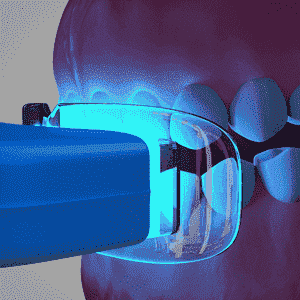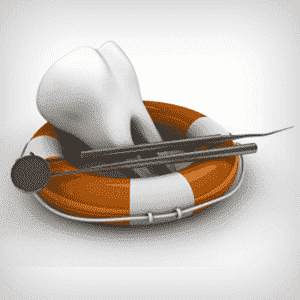Preventive Care
Regular Dental Checkup
In order to avoid lengthy procedures & maintain a healthy disease free mouth we recommend dental care every 6 months. This allows us to detect early signs of disease and provide appropriate treatment, leading to a favorable prognosis.
Dental Sealants
Sealants protect the occlusal surfaces, inhibiting bacterial growth and providing a smooth surface that increases the probability that the surface will stay clean. The ultimate goal of sealants is penetrating into the pits and fissures of the tooth and sealing them from bacteria.
Indications for Use
Traditionally, sealants are thought of as a preventive measure for children and teenagers when they are in their “cavity prone years”. Patients who have xerostomia (decreased salivation), are undergoing orthodontic treatment, show evidence of incipient caries, or who are prone to caries should be evaluated as candidates for sealant placement. Primary molars also can benefit from the placement of sealants.
Space Maintainers
Space maintainers are appliances made to custom fit your child's mouth to maintain the space intended for the permanent tooth when it decides to come in. They do this by "holding open" the empty space left by a lost tooth by preventing movement of the remaining teeth until the permanent tooth takes its natural position in the child's mouth. This treatment is much more affordable and much easier on your child than to move them back later with orthodontic procedures. Think of space maintainers as insurance against braces.
Why are they important to children's dental care?Well, baby teeth usually stay in place until "pushed out" by a permanent tooth that takes its place. Unfortunately, some children lose their baby teeth too early. A tooth may be knocked out accidentally or be removed due to severe disease. When this occurs, a space maintainer may be required to prevent future dental problems. Space maintainers encourage normal development of the jaw bones and muscles, and save space for the permanent teeth and help guide them into position.
How can losing a baby tooth too early cause problems for permanent teeth?Well, teeth are strange in that regard. Teeth attempt to "fill" any space available to them. If your child loses a baby tooth too early, the remaining baby teeth may tilt, drift, or move up or down to fill the gap. When this happens, they fill the space intended for the permanent tooth, and the permanent tooth can come in crowded or crooked. And this condition, if left untreated, may require extensive (and expensive) orthodontic treatment (braces or even surgery).
Do space maintainers require any special care?Yes, they do, and you as a parent can help. Make sure your child avoids hard/sticky foods (suckers, caramels, gum, popcorn, etc.). Teeth should be brushed after each meal and along with the bands especially well. Once a day, a fluoride mouthwash should be used to help prevent decalcification of the teeth around the band and wire. Do not try to bend the wire for any reason with your finger or tongue. Notify our office immediately if the bands come loose or the space maintainer is damaged in any way. If a tooth erupts under the wire this also needs to be checked.
Fluoride Treatment
What is fluoride?
The fluoride ion comes from the element fluorine. Fluoride, either applied topically to erupted teeth, or ingested orally (called systemic fluoride) during tooth development, helps to prevent tooth decay, strengthen tooth enamel, and reduce the harmful effects of plaque. Fluoride also makes the entire tooth structure more resistant to decay and promotes remineralization, which aids in repairing early decay before the damage is even visible.
Where is fluoride found?Topical fluoride is found in products containing strong concentrations of fluoride (i.e., toothpastes, mouth rinses), fluoridated varnishes and/or gels either topically applied by a dentist or other oral health professional, or prescribed as an at-home regimen (particularly for persons with a high risk of dental caries).
Systemic fluoride can be ingested through public and private water supplies, soft drinks, teas, as dietary supplements, some bottled water suppliers. Once ingested, systemic fluoride is absorbed via the gastrointestinal tract and distributed and deposited throughout the body via the blood supply.
What health risks are associated with fluoride uses?In general, fluoride consumption is safe. Health risks associated with fluoridation usually are limited to misuse and over concentration. To avoid misuse and over concentration, avoid drinking overly fluoridated water - results of this may cause teeth to become discolored, and may cause the enamel of the teeth to look spotted, pitted, or stained (a condition known as dental fluorosis). Avoid swallowing toothpaste and other dental hygiene products. Call your local water department and/or the health department to evaluate the fluoride level in your local drinking reservoir. Children are especially vulnerable to dental fluorosis as their developing teeth are more sensitive to higher fluoride levels. Consult a pediatric dentist or other oral health care professional if you notice changes in the condition of your child's teeth.

